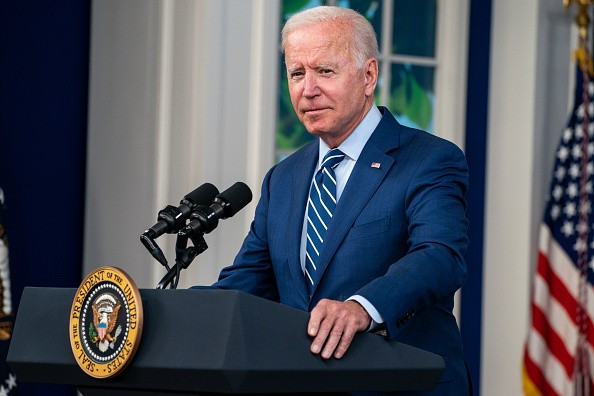When questioned about keeping up militarily with China and protecting Taiwan, President Joe Biden pledged to protect Taiwan from any Chinese invasion.

Biden Vowed To Protect Taiwan
In a recently published article in MSN News, a Republican college student questioned Biden about China's denial of a hypersonic missile launch and if he would pledge to defend Taiwan. "Yes and yes," said the president. The issue arose amid increased concerns over the island's relationship with China's mainland communist leadership.
After stopping to gather his thoughts, Biden said that China, Russia, and the rest of the world are aware that the United States has the most powerful military in history. If those nations grow stronger, Biden said. These nations should be concerned if they participate in actions that may jeopardize their status.
Biden reiterated his assertion that he had had more conversations with Chinese President Xi Jinping than any other global leaders. Biden wants China to realize that they are not going to back down, that they are not going to alter their minds, according to a published article in the Washington Examiner.
China Has Long Sought To Bring Taiwan Under Its Control
Taiwan is an autonomous democratic island country off the coast of mainland China known as the Republic of China. It gets American military assistance, but the U.S. government has not officially recognized it since diplomatic ties with the People's Republic of China, the mainland's communist government, were restored.
Taiwan has long been under the authority of the Chinese Communist Party, but it has remained a distinct, self-governing state. "Strategic ambiguity" has been characterized as the official US position on what would happen if China invaded Taiwan, according to a report published in FOX News.
White House Spokesperson Releases a Statement
White House spokesperson said that there was no change in policy announced by the President, and there is no change in policy. The Taiwan Relations Act governs the United States' defense relationship with Taiwan. The United States will honor its commitment under the Act, continue to assist Taiwan's self-defense, and reject any unilateral changes to the status quo.
The inference has always been that the United States would oppose any Chinese invasions into Taiwan but would refrain from making any formal defense commitment to the island nation. This problem has already arisen during Biden's tenure when US obligations to allies were questioned after the departure from Afghanistan.
Chinese Incursion in Taiwan
In a published article in The Guardian, China deployed a record number of military planes into Taiwan's air defense zone, the fourth day of such intrusions by Beijing amid mounting concerns of further escalation.
At least 52 flights were detected during daylight hours, according to Taiwan's defense ministry, including 36 fighter jets, 12 H-6 bombers, two transport planes, and two observation planes. It was reported that four more fighter aircraft had crossed into the zone after nightfall.
It came after a string of flights that included a then-record 38 aircraft during China's national day, 39 planes a day after, another 16 planes. The intrusions within the air defense identification zone (ADIZ) - a buffer zone outside a country's airspace - occurred only hours after the US State Department asked Beijing to "stop" its "provocative" and "destabilizing" activities.








